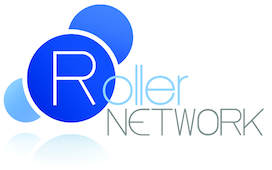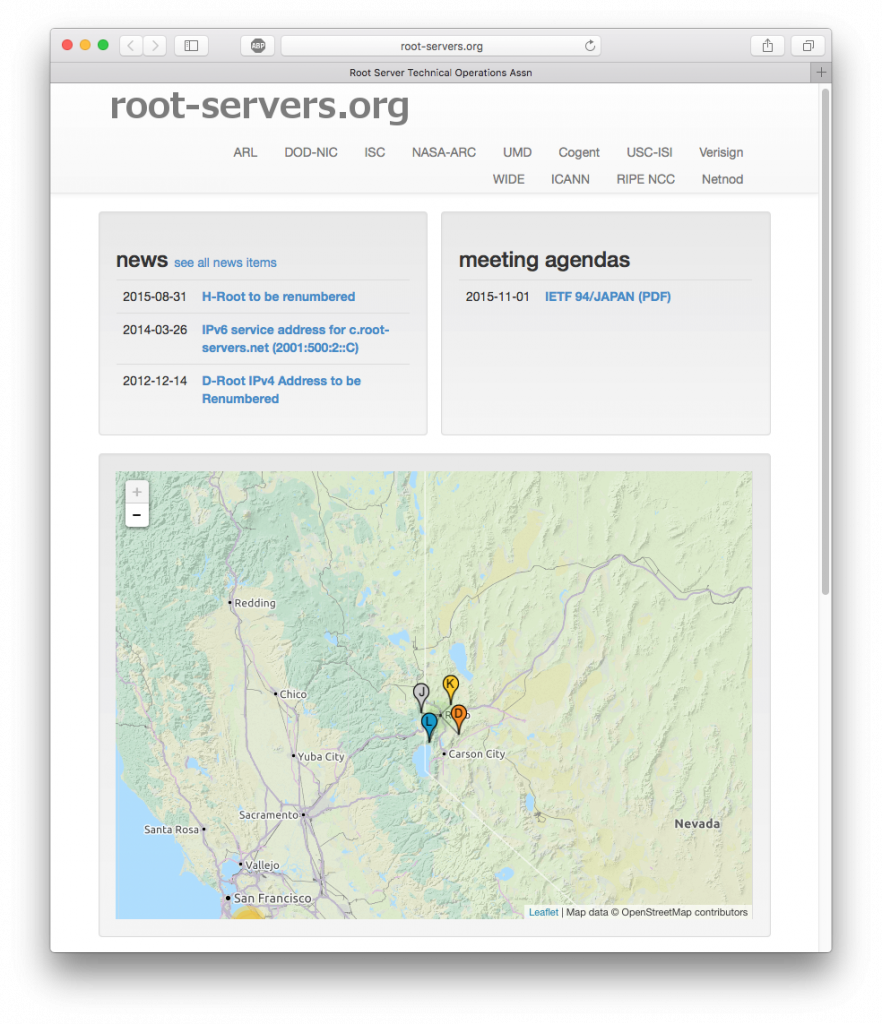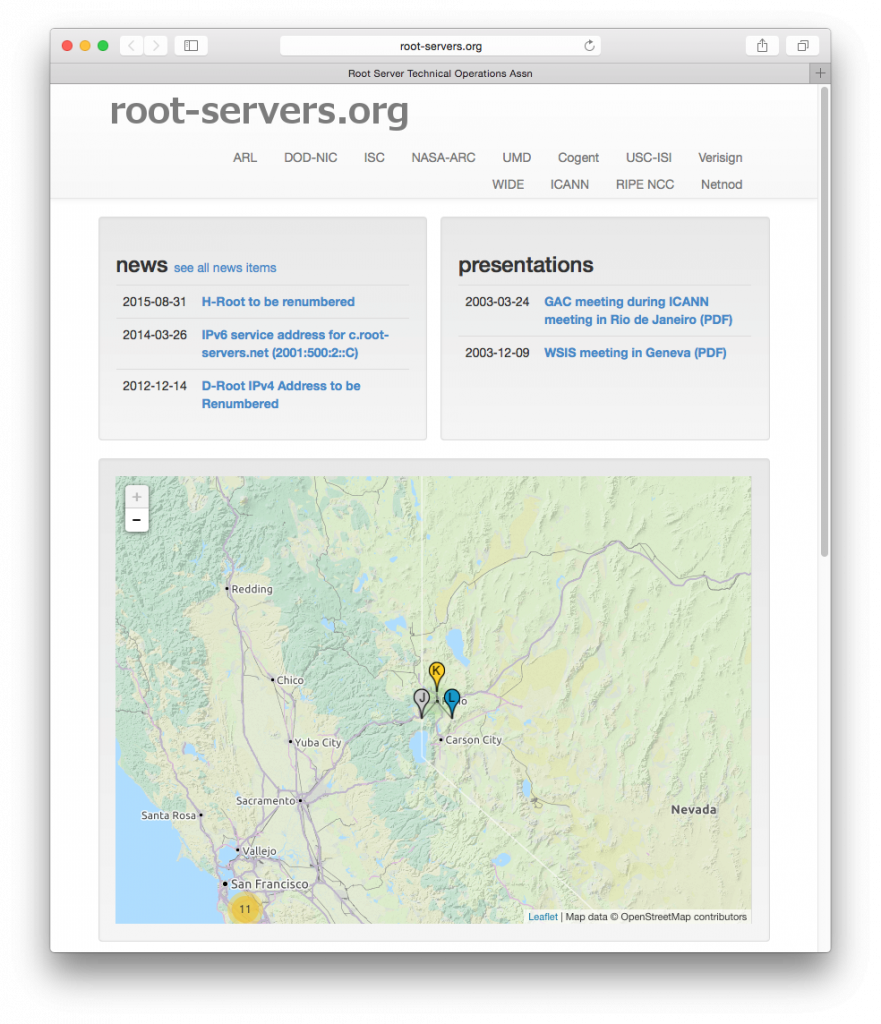We recently noticed D Root is now on the map here in Reno with IPv4 and IPv6 prefixes thanks to peering with TahoeIX! That makes 5 roots, including prefixes for E (not mapped).
Within the next several weeks we’re going to be changing voice service (phone) providers at our office. When it comes time to initiate the number port and reconfigure stuff there will be a short period of time where calls will not complete or could be dropped. Additional information will be posted as updates to this post and on our Twitter account as it becomes available.
The reason for this change is mainly for cost savings; our current provider is raising their prices and we don’t really use the phone enough to justify the increase. However, we still prefer a separate circuit instead of internet-based VOIP because of the nature of our business: if there is an internet related problem on our side that’s the time we are most likely to need the phones. Since we want to keep voice and internet out of the same basket as much as possible we continue to utilize separate voice circuits from a provider that we aren’t also using for transit multihoming.
UPDATE 1: New circuit has been delivered to the MMR. (11/17/2015)
UPDATE 2: Currently scheduled date for the cutover is the afternoon of Monday, November 30th.
UPDATE 3: The migration has been successfully completed.
Note that our alternate number has changed to 775-221-8807 (the old one could not be ported).
First there was J Root and now Reno is home to three: J, K and L Roots.
Access to the J, K, and L Roots are available through peering at TahoeIX and automatically to Roller Network customers since Rollernet already peers. TahoeIX also has prefixes for E root thanks to PCH, although it’s not indicated on the map. J Root should be turning up IPv6 soon, too.
At approximately 11:51 local time we were alerted to degraded performance on paths preferring transit through Charter AS20115. We collected data to open a ticket and attempted to apply a BGP community to lower localpref and move traffic away from AS20115. Oddly, we noticed, the alerts continued and no change was observed.
After attempting to tag a BGP community to lower localpref on announcements to AS20115 we decided to simply shut down the BGP neighbor completely at 11:59. However, we were horrified to discover that even after shutting down the BGP neighbor – effectively withdrawing all routes – Charter continued to announce ours and customer prefixes from AS20115.
The original problem we wanted to work around turns out to be a malfunctioning attenuator in a link bundle somewhere upstream, but this behavior of continuing to announce prefixes after we have withdrawn them or shutdown the BGP neighbor is a catastrophic loss of control over the network announcements from our autonomous system. We did employ what we like to call “stupid routing tricks” like deaggragation in a last ditch effort to drive traffic away from AS20115. However this could not help customer prefixes that were already at the minimum accepted size.
At this time there is no resolution. We’re simply at a loss in stopping Charter’s prefix hijacking other than to wait for them to address it.
UPDATE: The prefixes appear to have finally withdrawn this morning. We will post a complete update later, it’s been a long night.
UPDATE 2: Charter had a second emergency maintenance last night on the same equipment. We haven’t reestablished BGP with AS20115 yet.
UPDATE 3: We’re told that an IOS upgrade was performed on the device that hijacked the prefixes. On the morning of the 29th the affected device was rebooted at approximately 02:30 local time. We were told this solved our problem and our ticket was closed. However, we delayed reestablishing BGP until we could confirm a fix as a reboot would only clear the immediate problem, not fix the underlying issue. a second emergency maintenance occurred the next morning on the 30th with two observed reboots at 05:23 and again at 06:01. We’re told these were due to an IOS upgrade (through two independent sources) that should provide a fix for the bug. We did not reestablish BGP with AS20115 until October 1 at 17:45 local time. The time between our withdraw of prefixes and Charter’s propagation of our withdraw was approximately 14.5 hours. As far as we are aware no traffic was completely lost but was still affected by ~25% packet loss, which initiated our initial desire to withdraw routes.
This information is provided in an effort to maintain transparency in network operations at Roller Network.
ARIN Reaches IPv4 Depletion
On 24 September 2015, ARIN issued the final IPv4 addresses in its free pool. ARIN will continue to process and approve requests for IPv4 address blocks. Those approved requests may be fulfilled via the Wait List for Unmet IPv4 Requests, or through the IPv4 Transfer Market.
Read more at: https://www.arin.net/announcements/2015/20150924.html


